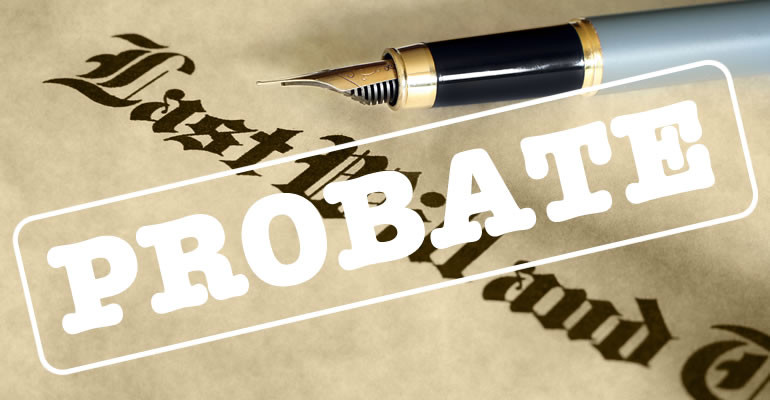
What appears to be one of the most boring topics imaginable has been the subject of closer scrutiny by those looking to put assets beyond the reach of creditors.
If you have significant debt problems and are looking to put assets out of reach of creditors, a trust can be useful.
But it is not foolproof and can be attacked and unraveled by creditors.
On the other hand you may have assets, no debt problems, but the person(s) who you would like to give those assets to may have debt issues.
And you are, understandably, afraid that those hard earned assets of yours will eventually end up in a great big pot for distribution to the creditors of your loved one.
This is the type of circumstance where a trust may be more usefully deployed, provided it is drafted correctly.
Trusts are also valuable when there are minor children who will be beneficiaries in a will, where you want to make arrangments for someone with a disability, perhaps for an elderly person. You might also set up a trust for taxation reasons.
Will Trusts
Trusts that can be used in drafting wills include:
- a discretionary trust
- a trust for sale
- a Settled Land act trust
- an interest in possession/fixed trust.
Discretionary Trusts
A discretionary trust fund is one where the only interest that potential beneficiaries have is the right to be considered for an appointment of property. The beneficiaries do not have an absolute right to the trust fund so do not have an interest in possession.
A discretionary trust is useful where
- There are young children
- The testator wishes to postpone mainstream capital acquisitions tax
- The testator wants to adopt a “wait and see” approach to see how potential beneficiaries will turn out.
The trust fund, the beneficiaries, and the trustees must be set out in the will.
Here is an example:
In my Will where the context so admits
1. The beneficiaries shall mean and include:
a) My children
b) My grandchildren born within the trust period hereinafter defined.
2. The trust fund shall mean
a) The sum of €25,000 or the whole of my estate after the payment of my debts, funeral, testamentary, administration expenses and legacies and
b) All money, investments or other property accepted by the trustees as additions.
c) All accumulations (if any) of income directed to be held as an accretion to capital and
d) The money, investments and property from time to time representing the above.
The definition of the trust fund can be as narrow or as wide as the testator chooses. It can be a specific sum of money, a property, or the residue of the estate.
The trustees need to be defined also.
Here is an example:
I appoint Jim and Mary to be trustees (my trustees) of my Will and I appoint them trustees for all the purposes of the Settled Land Acts 1882 to 1890, the Conveyancing Act 1881, the Land and Conveyancing Law Reform Act 2009 and sections 57 and 58 of the Succession Act 1965.
Once the trustees, trust fund, and beneficiaries are defined the substantive trust must be created.
Here is an example of a substantive trust:
I give devise and bequeath the trust fund to my trustees upon trust either to retain or sell it on the following trusts:
Until the vesting day to pay the capital and any income arising from it to any one or more of the beneficiaries in such shares and at such times as my trustees in their discretion think fit without obligation to make payments to or for the benefit of all the beneficiaries or to require equality among those to whom payments are made and on the vesting day to divide what remains of the capital and accrued income equally among the beneficiaries then living without regard to payments already made to them.
Trusts for Sale
This trust is where the trustees are under an obligation to sell, invest the proceeds and hold the proceeds on the terms of the original trust.
This type of trust puts the trustees in control of the timing of any sale of trust property and they cannot be forced to sell, even if a beneficiary wants them to do so.
To incorporate such a trust in a will you need to first decide:
- Who are the trustees and
- What is the trust property.
Here is an example of a trust to sell:
I Give Devise and Bequeath all the rest residue and remainder of my estate of whatsoever nature and wheresoever situate unto my trustees upon trust to sell the same and to hold the proceeds of such sale or my residuary estate for so long as the same shall remain unsold upon trust for my daughters Michaela Smith and Susan Sarandon in equal shares.
There is no power to postpone a sale in the wording above. If such as power is to be given then this will give that power:
I Give Devise and Bequeath all the rest residue and remainder of my estate of whatsoever nature and wheresoever situate unto my trustees upon trust to sell the same with power in their absolute discretion to postpone the said sale and to hold the proceeds of such sale or my residuary estate for so long as the same shall remain unsold upon trust for my daughters Michaela Smith and Susan Sarandon in equal shares.
If a property is not held upon trust for sale then a power of sale must be given to the trustees in the will.
An ultimate default trust will also be needed to cover the situation where Michaela and Susan referred to above predecease the settlor/testator or the trust fails for want of a beneficiary. If this default trust is not inserted the danger is that the property will pass on intestacy.
Settled Land Act Trusts
The Settled Land Act, 1882 defines a “settlement” of land. A “settlement” is where real property is held by a succession of interests or where a minor has an interest in property.
Settled Land Act Trusts are very useful for the protection of a life tenant who has the power of sale under the Settled Land Acts.
An example of a settlement would be
To my wife for life and thereafter to my son Sheamus.
One of the benefits of this type of settlement is to fix the time at which an interest will vest in the remainderman (Sheamus above) and to postpone the payment of tax to sometime int eh future.
Fixed Trusts/Interest in Possession Trusts
A fixed trust is one in which the interests of various beneficiaries are fixed at the time of the creation of the trust.
They can be very useful to
- Create an immediate interest in possession eg a life interest
- Provide clarity as to who will get the trust property at a fixed time in the future
- Allow a testator to postpone the vesting of an interest until a beneficiary reaches a certain age
- Avoid discretionary trust tax provisions.
It is worth noting the distinction between a benefit vested in possession and a benefit vested in interest.
Eg of a benefit vested in possession:
I Give Devise and Bequeath all the rest residue and remainder of my estate of whatsoever nature and wheresoever located to my daughter Emily.
Eg of a benefit vested in interest:
I Give Devise and Bequeath all the rest residue and remainder of my estate of whatsoever nature and wheresoever located to my daughter Emily and on her death to my son John.
John has a benefit vested in interest.
Trusts and Taxation
You would be well advised to obtain taxation advice about using a trust because deemed disposals of property are said to have taken place for capital gains tax purposes at different times, depending on the wording of the trust instrument/will.
The Land and Conveyancing Law Reform Act 2009
The Land and Conveyancing Law Reform Act 2009 has made significant changes to trust law in Ireland eg the Rule Against Perpetuities which may have affected a trust has been abolished.
The Land and Conveyancing Law Reform Act 2009 introduced a simpler way of dealing with trust land which up to then had been governed by the Settled Land Acts, 1882-1890. The 2009 Act covers all trusts of land ,whether created by will or otherwise.
The Land and Conveyancing Law Reform Act 2009 also sets out the powers of trustees of land, procedures for resolution of disputes, jurisdiction of the Courts to vary and make other orders in relation to trusts, and offers protection for purchasers of trust land.
Will Trusts-Some Other Facts You Should Know
Trusts are incredibly useful legal devices which are typically used to
- Ensure property is enjoyed by individuals in succession
- Provide for beneficiaries whose identity may not yet be known.
Trusts can be broadly categorised into
- Inter vivos (during the lifetime) trusts and
- Will trusts.
What is a Trust?
A trust is an equitable obligation, binding a person (who is called a trustee) to deal with the property over which he has control (which is called trust property) either for the benefit of persons (who are called beneficiaries) of whom he himself may be one, and any one of whom may enforce the obligation, or for a charitable purpose…, or for some other purpose permitted by law..(Source: Underhill)
The 3 Certainties
In order for a trust to be legally constituted it must have 3 certainties:
- The subject matter of the trust must be certain (this imposes 2 obligations: the trust property must be certain and the interest to be taken by the beneficiaries must be certain)
- The objects (beneficiaries) must be certain
- The words used by the testator must have been imperative to show his (her) intention to create an obligation.
No particular form of words is required to create a valid trust but words like “wish”, “hope”, “desire” may cause a trust to fail as they are not sufficiently imperative.
However precatory words like those above may be sufficient to create a trust if the wishes and intention of the settlor/testator is clear from the circumstances.
If any of these certainties are “uncertain” or unclear, the trust will almost certainly fail.
Other Trust Requirements
Where the trust property is land/real property, the trust must be evidenced in writing.
If the trust is a will trust, the will must be valid and comply with the Succession Act, 1965.
There are also categories of trust which are void because they are contrary to public policy and further trusts which are voidable by the Courts on the grounds of fraud, mistake, undue influence, duress, misrepresentation.
Different Types of Trust
Before going on to look at will trusts in more detail it is worthwhile to take a brief look at some different types of trust:
1. Trusts which arise by operation of law
These types of trust are either resulting or implied trusts-where the law presumes that the owner of property intended that it should be held in trust-or constructive trusts-where the Courts will impose a trust to satisfy the demands of justice in particular circumstances eg where a person in a fiduciary position makes a personal profit.
2. Statutory Trusts
The Family Law Act, 1995 and Family Law (Divorce) Act, 1996 allows Courts to order that property held by one spouse should be placed in settlement/trust for the other spouse and/or children.
- Charitable Trusts
- Trusts Created for Purposes
- Discretionary Trusts
A discretionary trust is one which is set up to gives the trust property to trustees with the power to the trustees to give the property as they see fit to members of a particular class of person.
3. Trusts for Sale
This occurs where trustees are given property on trust with the power to sell it or postpone a sale as they see fit.
4. Protective Trusts
This type of trust is usually for the benefit of family members and will have a restriction or condition attached eg “the income to Mick for life while he keeps out of betting shops.”
5. Revocable Trusts
A trust cannot generally be revoked but an exception is a trust for paying the settlor’s debts. This type of trust cannot be used to defeat the settlor’s creditors though.
The Parties to a Trust
There are usually 3 parties to a trust or settlement:
- The testator/settlor (if the trust is created by a will he/she is referred to as the testator)
- The trustee(s)
- The beneficiaries.
A trust which takes effect on death is a will trust.
A settlor/testator can himself be a trustee and/or beneficiary and creates the trust by deed, will, or by act. (However if he is a testator he clearly cannot be a beneficiary or trustee!)
The Trustees
The trustees are the legal owners of trust property and carry out the terms of the trust. The trustees have legal title to the property while the beneficiaries have equitable title.(Although strictly speaking it is probably more accurate to describe the trustees as the nominal owners. Because a beneficiary under a settlement could also make a settlement of his interest where the legal ownership remains with the original trustees).
Anyone who is not under a handicap can be appointed a trustee, including a beneficiary (but a conflict of interest may clearly arise).
Trust property is held by the trustees as joint tenants with the right of survivorhip arising on the death of a trustee. A completely constituted trust is one where a trust has been validly declared and the title to trust property has been transferred to the trustees.
You can have as many or as few trustees as you wish but the more trustees the more difficult it might be to manage the trust’s affairs.
Generally it is a good idea to have at least 2 trustees although one can perform all necessary duties.
Trustees are appointed by the settlor/testator in the first instance. Trustees can also be appointed by the original trustees, those who have statutory powers, and beneficiaries in some circumstances.
In a will trust the trustees and executors will usually be the same persons.
If trustees named in a will are unable to act or have disclaimed or if the settlor failed to appoint trustees then the Courts have the power to appoint trustees.
Both the Trustee Act, 1893 and the Succession Act provide for the appointment of trustees as circumstances dictate eg the predeceasing of the settlor by a trustee.
Trustees of a Minor/Infant Trust-Under Age Children
If a child inherits from a will, and there is no receipt clause in the will, or on intestacy there is nobody in whom the LPR (legal personal representative) can vest the asset or obtain a receipt.
However section 57 of the Succession Act, 1965 comes to the rescue:
| 57.—(1) Where an infant is entitled to any share in the estate of a deceased person and there are no trustees of such share able and willing to act, the personal representatives of the deceased may appoint a trust corporation or any two or more persons (who may include the personal representatives or any of them or a trust corporation) to be trustees of such share for the infant and may execute such assurance or take such other action as may be necessary for vesting the share in the trustee so appointed. In default of appointment the personal representatives shall be trustees for the purposes of this section. |
|
|
(2) On such appointment the personal representatives, as such, shall be discharged from all further liability in respect of the property vested in the trustees so appointed. |
This means that where minors inherit and no trustees have been appointed the LPR (legal personal representative) can appoint trustees for the purposes of section 57 and a trip to Court can be avoided. If the LPR does not appoint trustees he/she shall be a trustee for the purposes of this section of the Succession Act, 1965.
However it should be noted that this only applies to the share of a minor. Anybody else who is a beneficiary and is under a disability and cannot give a receipt to the legal personal representative will necessitate a trip to Court.
The powers of trustees appointed under section 57 of the Succession Act are set out in section 58 of the Act.
Section 58 also provides for a situation where a minor inherits land on intestacy ie there is no will:
Section 58 (2) Where an infant becomes entitled to any estate or interest in land on intestacy and consequently there is no instrument under which the estate or interest of the infant arises or is acquired, that estate or interest shall be deemed to be the subject of a settlement for the purposes of the Settled Land Acts, 1882 to 1890, and the persons who are trustees under section 57 shall be deemed to be the trustees of that settlement.
The Constitution of Trusts
A trust is completely constituted where the trust property has been vested in the trustees for the benefit of the beneficiaries. This is critically important because the law will not enforce an incompletely constituted trust in favour of a beneficiary.
So an express trust may be completely constituted either by the transfer of property-this must be an effective transfer of the property to be included, not just an intention- to trustees to be held on certain trusts or by a settlor declaring himself to be a trustee for the benefit of specified trustees.
For a trust to be completely constituted whatever formalities are required for the method of constitution must be complied with eg for a trust to be completely constituted by will the relevant statutory formalities must be complied with as set out in the Succession Act, 1965. For an inter vivos transfer of property the formalities applicable to the transfer of that type of property must be carried out eg the transfer of land will required the execution of a deed or transfer.
Declaration of trust by settlor
A settlor can completely constitute a trust where he declares himself a trustee of the property for the benefit of third parties. There must be clear evidence of the settlor’s intention to create a trust. Where the trust property is real property, the declaration of trust must be evidenced in writing.
In summary, a completely constituted trust can be enforced by a beneficiary, even if he is a volunteer. If the trust is incompletely constituted then it will be of vital importance to establish whether the beneficiaries are volunteers or have provided consideration.
Duties and Powers of Trustees
Trustees have both statutory and non statutory powers and duties. Non statutory powers will be granted by the trust deed itself.
Powers and duties usually given to trustees include
- The power and duty to collect and preserve the assets
- The power to invest
- The duty not to make a profit from the trust eg to buy trust property
- To be impartial between beneficiaries
- To account for and distribute the assets and keep proper accounts.
Trustees’ statutory powers derive from
- The Settled Land Acts 1882-90
- The Succession Act 1965
- The Land and Conveyancing Law Reform Act, 2009
- The Trustees Act, 1893.
Additional non statutory powers should be given to trustees such as, depending on the circumstances,
- the power of sale
- the power to invest
- the power to run a business
- the power to lend money and borrow money
- the power to delegate
- the power to insure property
- the power to advance capital
- the power to pay professional fees
- the power to compromise action in claims.
A trustee who is appointed does not have to act-he can disclaim from the outset- but in a will trust if a person is appointed as executor and trustee and accepts the executorship he will be presumed to have accepted the trusteeship.
Once he accepts the job he cannot disclaim. He can retire however according to the terms of the trust.
A trustee can be removed from office either in accordance with the terms of the trust or if all the beneficiaries agree.
Differences Between Legal Personal Representatives and Trustees
An LPR (legal personal representative) can be appointed by will or by Court.
A trustee can be appointed by the settlor/testator, by Court, or by existing trustees.
Only one LPR is required; it is recommended that at least 2 trustees be appointed as 2 are necessary to give receipts for capital monies under the Settled Land Acts.
Receipts for land: one LPR is all that is required (unless it is for settled land) but all trustees must join in getting valid receipts.
An LPR cannot retire but a trustee can.
The powers of personal representatives and trustees are different; LPRs have wide powers deriving from common law, statute and the will.
Trustees derive their powers from statute and the will or trust deed.
If a personal representative dies before the administration of the estate a de bonis non grant is necessary; if a trustee dies his personal representative can take his place until a new trustee is appointed in his place.
Beneficiaries of a Trust
Beneficiaries are those for whom trust property is being held.
However the legal interests of those beneficiaries can vary greatly eg a life interest, an interest for a certain period, an interest subject to a condition etc.
Powers of Beneficiaries of a Trust
Beneficiaries of a trust can act collectively to terminate the trust. A beneficiary can also disclaim or sell his interest.
Some Common Misconceptions about Trusts
As a trust is not a legal entity per se it cannot hold assets or enter contracts or carry out any other legal formalities. Trust property is owned by the trustee(s) and it is the trustee(s) that has legal capacity.
A trust therefore cannot be bound by a legal contract and any contracts entered into by a trust are not legally enforceable.
By Terry Gorry




